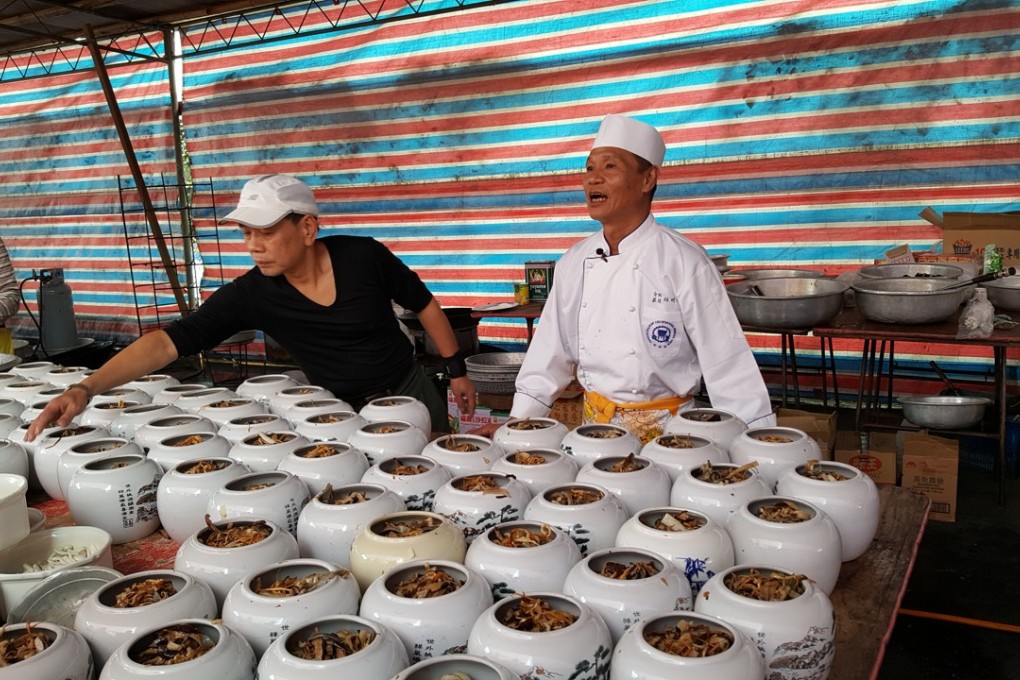How Taiwan’s food traditions are falling out of favour, and one chef’s quest to keep them alive
Once important for forging social bonds, the custom of holding bando banquets has become endangered with the island’s increasing affluence

Throughout the afternoon, the hardworking chui kha prepare ingredients for the coming banquet. Hired and supervised by the head chef, many are women in their 50s, and married or related to the men unloading gas stoves from vehicles and erecting a tarpaulin-covered scaffold over the stretch of road that will serve as the evening’s venue.
The duties of the chui kha – Taiwanese Hokkien for “water feet”, from the water that splashes their toes as they squat down to scrub vegetables and plates in metal basins arrayed across the tarmac – go far beyond chopping and stirring. They serve guests, clear tables and wash up afterwards.
The scene is one that is familiar to many Taiwanese. Most married couples on the island would have celebrated their nuptials with a roadside feast of this type, and few residents have not attended a bando, which means simply “set up tables”. But ever more people are turning to restaurants and hotels to host their wedding banquets and for the end-of-year celebrations that companies organise for employees, known as weiya.

According to Taiwanese food historian Yujen Chen, before the period of Japanese colonial rule, between 1895 and 1945, such banquets allowed new arrivals from the Chinese mainland to forge the social networks that would replace the family and other ties they had left behind. In Taiwan’s frontier society, ambitious individuals would sponsor bando to strengthen relationships with those who might help them climb the social ladder.